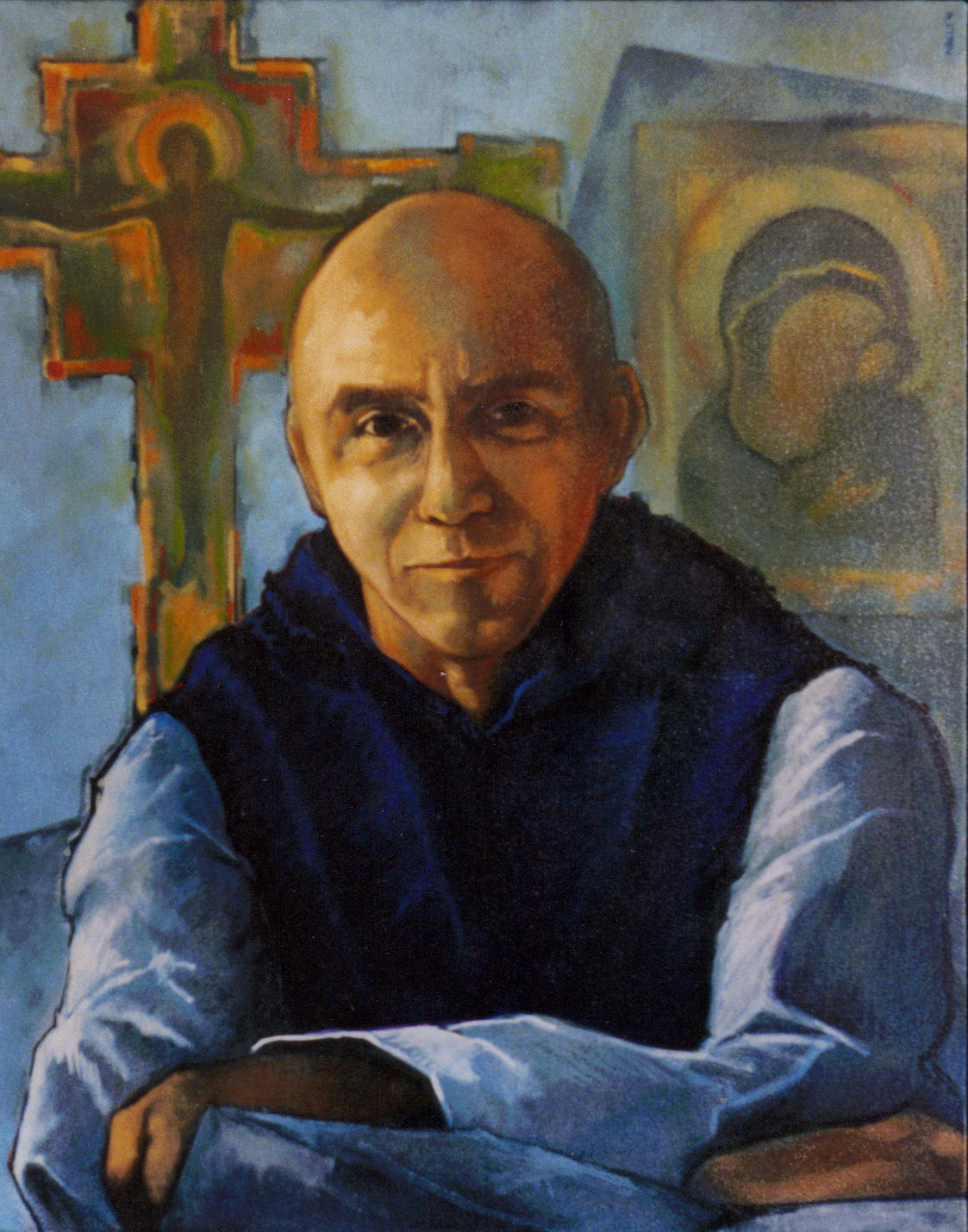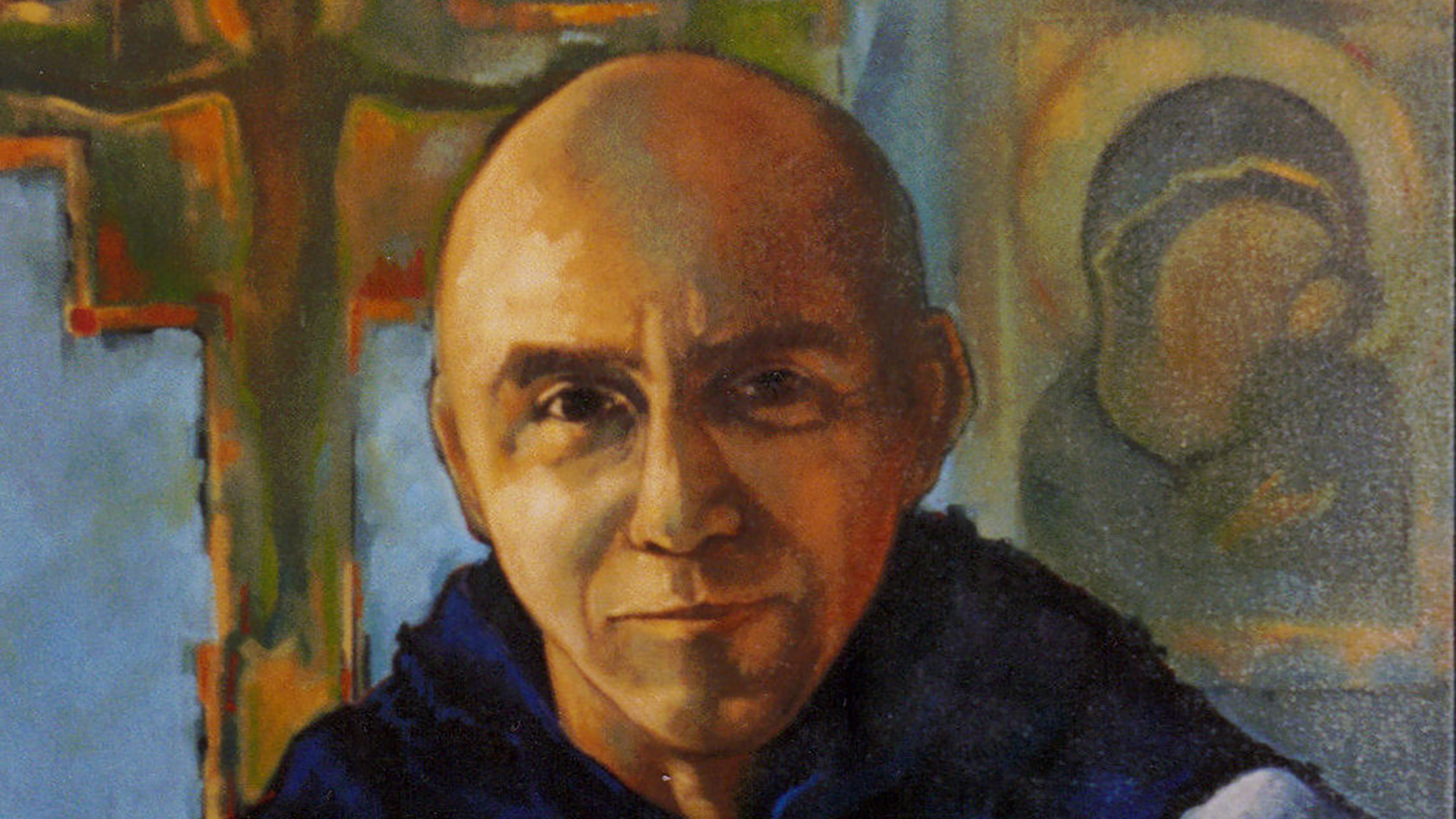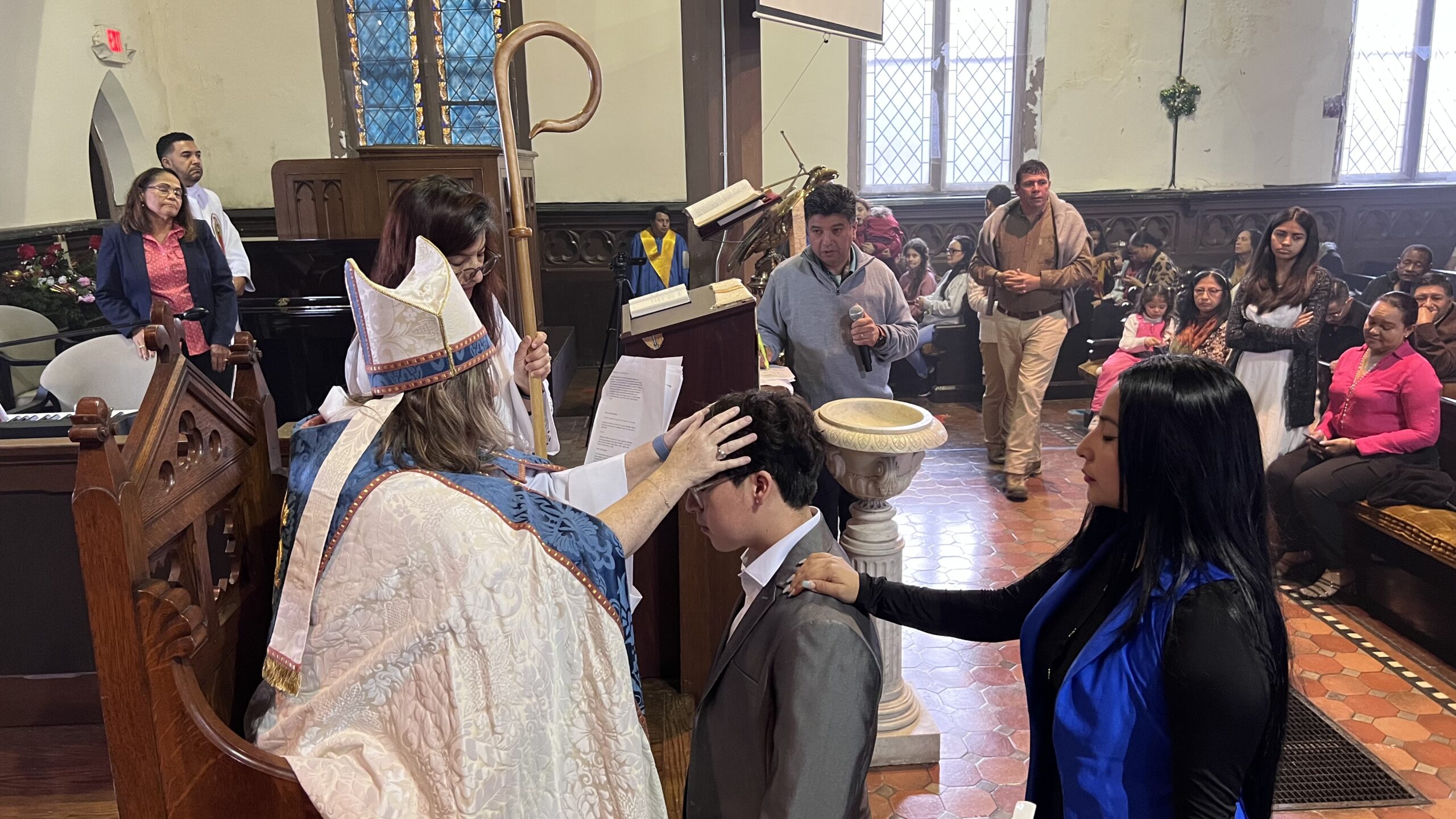Dear People and Friends of the Diocese of New Jersey,
For God alone my soul in silence waits; from him comes my salvation. Psalm 62:1
Advent is the Church’s holy season of waiting and expectation. We wait for the coming anew of Christ into our world and into our lives. Paradoxically, we also believe, or should believe, Christ is with us now and always. Consider Jesus’ final words to his disciples at the conclusion of Matthew’s Gospel, I am with you always, to the end of the age” (Matthew 28:20). What do we make of this paradox? Thomas Merton seems to offer a way forward.

Trappist Monk, Mystic, Writer/Poet and Activist Thomas Merton died on December 10, 1968 and The Episcopal Church calendar invites a commemoration of Merton on this date.[1] Merton gained worldwide recognition with the 1948 publication of his autobiographical book The Seven Storey Mountain which tells the story of his conversion to Roman Catholicism and subsequent turn to monastic life among the most rigorous of religions orders. According to Holy Women, Holy Men, Merton was among the most influential Catholic writers of the twentieth century” with writings that “cover a broad range of subject matter: spirituality and the contemplative life, prayer, and religious biography.”[2] Holy Women, Holy Men reports accurately that, “He was also deeply interested in issues of social justice and Christian responsibility,” and “did not shy away from controversy and addressed race relations, economic injustice, war, violence, and the nuclear arms race.”[3]
Among Thomas Merton’s many writings is a volume of reflections on the seasons of the Church year titled Seasons of Celebration.[4] This volume includes Merton’s essay, “Advent: Hope or Delusion?” in which he explores the depth and significance of this season:
It is important to remember the deep, in some ways anguished seriousness of Advent, when the mendacious celebrations of our marketing culture so easily harmonize with our tendency to regard Christmas, consciously or otherwise, as a return to our own infancy.”[5]
Merton calls his readers to understand the much greater and deeper significance of Advent, observing:
“But the Church in preparing us for the birth of a ‘great prophet,’ a Savior and a King of Peace, has more in mind than seasonal cheer. The Advent mystery focuses the light of faith upon the very meaning of life, of history, of man [sic], of the world and of our own being. In Advent we celebrate the coming and indeed the presence of Christ in our world. We witness to His presence even in the midst of all its inscrutable problems and tragedies.”[6]
Consonant with Christ’s assurance at the end of Matthew’s Gospel, Merton acknowledges the presence of Christ in the world already, with all its “inscrutable problems and tragedies.” Merton is not a blind idealist. He sees and acknowledges the sinfulness of the world and writes that for Christians, the task is “to seek and find Christ in our world as it is, and not as it might be.”[7] He continues:
“The fact that the world is other than it might be does not alter the truth that Christ is present in it and that His plan has been neither frustrated nor changed: indeed all will be done according to His will. Our Advent is the celebration of this hope. What is uncertain is not the ‘coming’ of Christ but our own reception of Him, our own response to Him, our own capacity and readiness to ‘go forth to meet him.”[8]
In this essay, Merton describes a profound interaction between the individual believer and Christ which suggests a rich place for us to meditate on this Advent. Making reference to the great hymn of Christ’s “self-emptying” in Philippians 2:6-11, Merton writes:
“The Christ who emptied Himself taking the form of a servant, dying on the Cross for us, brought us the plentitude of His gifts and of His salvation. But he continues in us a kenotic [i.e. self-emptying] and hidden existence. The fullness of time is the time of his emptiness in us. The fullness of time is the time of our emptiness, which draws Christ down into our lives so that in us and through us He may bring the fullness of His truth to the world.”[9]
Through all the noise of the contemporary world in which we live, with all its “inscrutable problems and tragedies,” Advent invites, urges us, to empty ourselves for the coming of Christ anew, the Christ who, paradoxically, is already in our midst; to make of ourselves “a mansion prepared for himself.”[10]
Stir up your power, O Lord, and with great might come
among us; and, because we are sorely hindered by our sins,
let your bountiful grace and mercy speedily help and deliver
us; through Jesus Christ our Lord, to whom, with you and
the Holy Spirit, be honor and glory, now and for ever. Amen.
(Collect for the Fourth Sunday of Advent – Book of Common Prayer -1979, p. 212)
May God bless you and keep you as you go forth to meet the Savior this Advent.
Faithfully yours in Christ,

The Right Rev. William H. Stokes
Bishop of New Jersey
____________
Notes
[1] German Theologian Karl Barth also died on the same date and the Church invites the option of commemorating him on December 10 as well.
[2] See “Thomas Merton” – Holy Women, Holy Men (New York: Church Publishing Inc., 2010)
[3] Ibid.
[4] Merton, Thomas – “Ádvent: Hope or Delusion?” Seasons of Celebration (New York: Farrar, Straus and Giroux, 1950) – Kindle edition
[5] Ibid – Kindle location 1110
[6] Ibid – Kindle location 1116 – 1122
[7] Ibid – Kindle location 1134
[8] Ibid. Kindle location 1139
[9] Ibid – Kindle location 1174
[10] See Collect for the Fourth Sunday of Advent, Book of Common Prayer (1979), p. 212.










